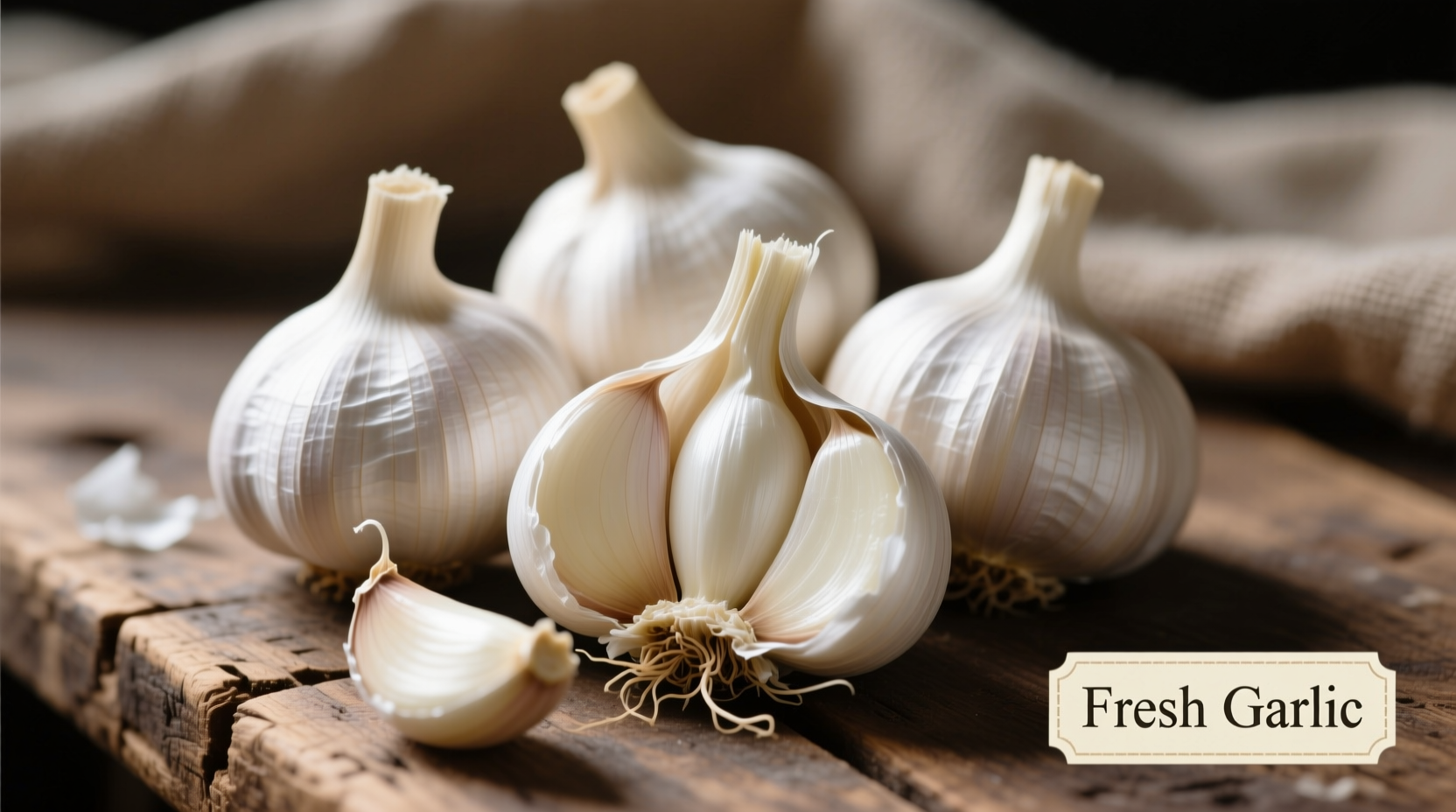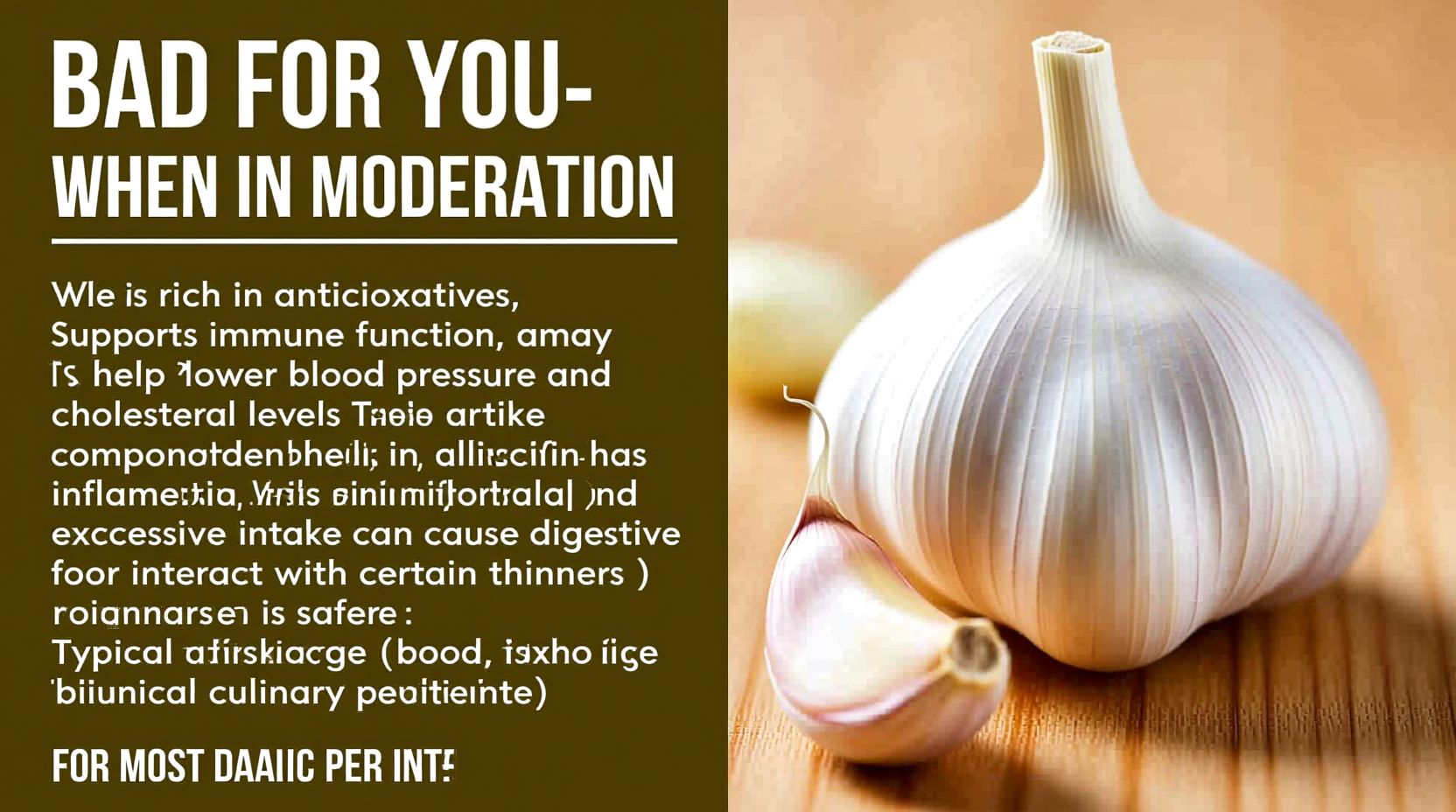Understanding Garlic's Complex Health Profile
Garlic (Allium sativum) has been used for both culinary and medicinal purposes for thousands of years. Modern research reveals a nuanced picture: while generally safe and beneficial, garlic does present specific considerations for certain populations. Let's examine the evidence behind garlic consumption to help you make informed decisions about incorporating this pungent bulb into your diet.
Who Should Moderate Garlic Intake?
Most people can safely enjoy garlic in typical culinary amounts (1-2 cloves daily), but these groups should exercise caution:
- Individuals taking blood thinners like warfarin, as garlic may increase bleeding risk
- People with bleeding disorders due to garlic's antiplatelet effects
- Those with irritable bowel syndrome (IBS) as garlic contains FODMAPs that can trigger symptoms
- People scheduled for surgery should stop high-dose garlic supplements 1-2 weeks beforehand
- Individuals with garlic allergy (rare but possible)
| Population | Consideration | Recommended Action |
|---|---|---|
| Blood thinner users | Potential increased bleeding risk | Consult physician; moderate culinary use generally safe |
| IBS sufferers | FODMAP content may trigger symptoms | Limit to 1 clove or try black garlic (lower FODMAP) |
| Pre-surgery patients | May increase bleeding during procedures | Discontinue supplements 7-14 days pre-surgery |
| Healthy adults | Generally well-tolerated | 1-2 cloves daily provides benefits without concerns |
The Science Behind Garlic's Benefits and Concerns
When garlic is chopped or crushed, it releases allicin—the compound responsible for both its distinctive aroma and many health benefits. According to research published in the Journal of Nutrition, allicin demonstrates antimicrobial, antioxidant, and cardiovascular protective properties.
The National Center for Complementary and Integrative Health (NCCIH) notes that garlic may help lower blood pressure and improve cholesterol levels, though effects are modest compared to pharmaceutical interventions. Most studies showing significant benefits used aged garlic extract or high-dose supplements (600-1,200 mg daily), not typical culinary amounts.
Common side effects of excessive garlic consumption include:
- Bad breath and body odor (typically harmless)
- Heartburn or digestive upset
- Skin irritation from handling raw garlic
- Increased bleeding time (with very high intake)

Evidence-Based Guidelines for Safe Consumption
Based on current research, here's how to enjoy garlic safely:
Culinary Use vs. Supplements
Food-based garlic consumption rarely causes problems. The concerns primarily apply to concentrated supplements. The European Medicines Agency states that daily intake of up to 5g of fresh garlic (approximately 1-2 cloves) is considered safe for most adults.
Raw vs. Cooked Garlic
Raw garlic contains higher levels of active compounds but is more likely to cause digestive upset. Cooking reduces allicin content but makes garlic gentler on the stomach. Letting chopped garlic sit for 10 minutes before cooking maximizes allicin formation.
Medication Interactions to Consider
Garlic may interact with:
- Anticoagulants (warfarin, aspirin)
- Certain HIV medications (saquinavir)
- Some blood pressure medications
If you take prescription medications, consult your healthcare provider before adding large amounts of garlic or supplements to your diet.
Practical Tips for Enjoying Garlic Safely
Follow these evidence-based recommendations to maximize benefits while minimizing potential issues:
- Start with small amounts if you're new to regular garlic consumption
- Pair with food to reduce digestive irritation
- Choose aged garlic extract if seeking therapeutic benefits with fewer side effects
- Monitor your body's response—discontinue if you experience adverse effects
- Inform your surgeon about garlic supplement use before procedures
When Garlic Becomes a Concern
While rare, excessive garlic consumption can lead to problems. The Mayo Clinic reports cases of garlic toxicity from extremely high intakes (multiple cloves daily for extended periods), potentially causing liver damage or severe digestive issues.
Garlic allergy, though uncommon, can cause symptoms ranging from skin rash to anaphylaxis. If you experience itching, swelling, or breathing difficulties after consuming garlic, seek medical attention immediately.
Conclusion: Garlic's Place in a Healthy Diet
For the vast majority of people, garlic is not bad for you—it's a valuable component of a healthy diet. The Mediterranean diet, consistently ranked among the world's healthiest eating patterns, features garlic prominently. Current evidence suggests that moderate culinary use of garlic provides health benefits with minimal risk.
As with any food, individual responses vary. Pay attention to how your body reacts, and consult a healthcare provider if you have specific health conditions or concerns about garlic interactions. When enjoyed as part of a balanced diet, garlic's distinctive flavor comes with a host of potential health advantages.











 浙公网安备
33010002000092号
浙公网安备
33010002000092号 浙B2-20120091-4
浙B2-20120091-4